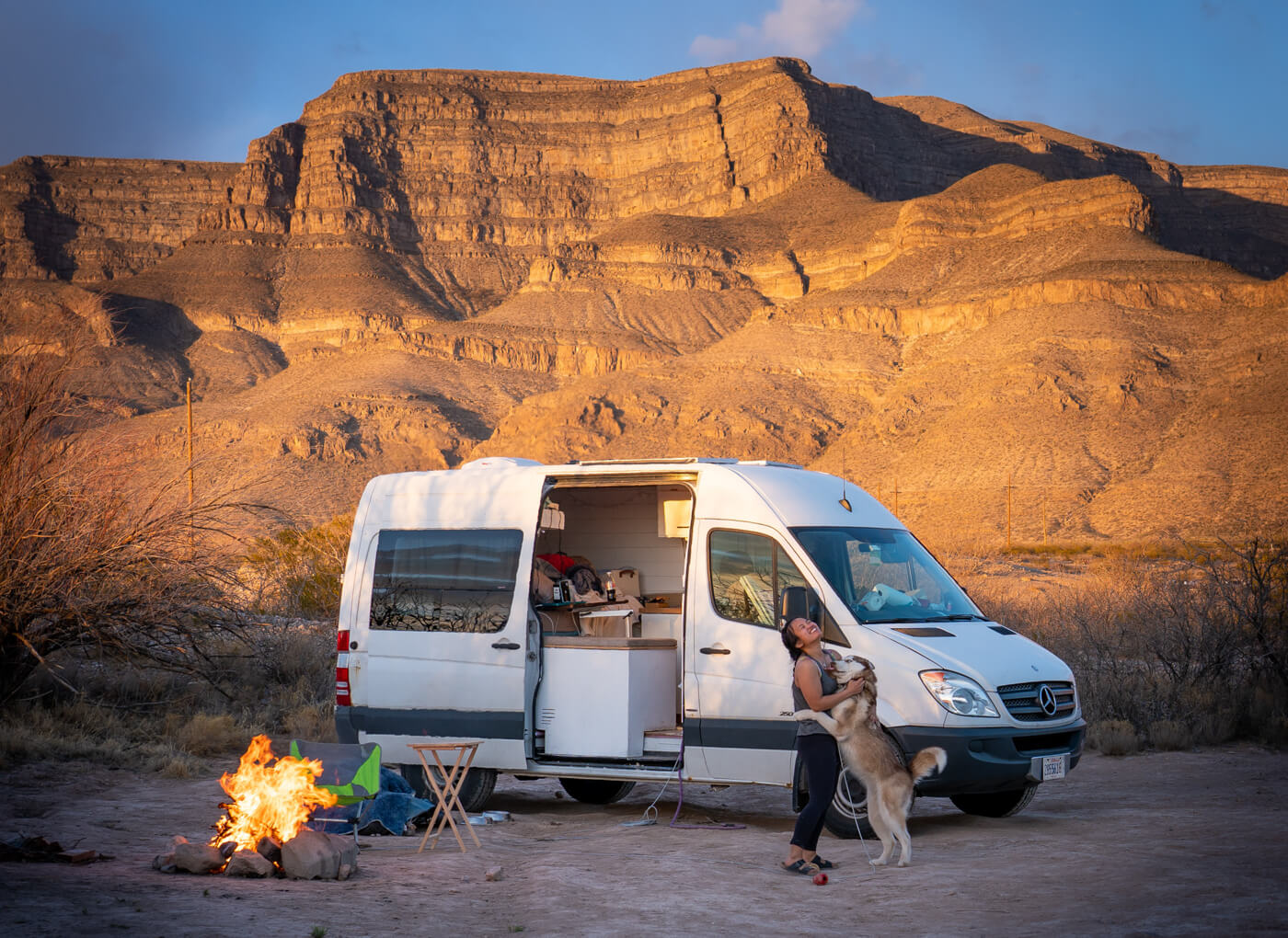Written and captured by Kay Rodriguez
Unlike most outdoor enthusiasts, I didn’t start actively exploring the outdoors until I was in my mid-twenties. I’d never camped until I was 22, didn’t summit any mountains or go on long-distance hikes until I was 23, and never participated in any outdoor clubs or sports while in school.
At the time, my rationale for not doing these things was simple: people who look like me - short, female, non-athletic, Asian - just didn’t go outdoors.
But then, while I was traveling in Southeast Asia, a friend I’d made on the road invited me to try rock climbing with him. Hostelmates asked if I’d like to rent bikes with them. Friends in Vietnam invited me on a 3-day trek with them. And over time, I started to be more and more drawn to outdoor activities.
Once I discovered my love for the outdoors, it grew quickly. I started spending my afternoons lying in a hammock under the trees in my neighborhood park. I went from never having camped to living full-time in a campervan. I started hiking and backpacking with my friends. I joined a climbing gym instead of a normal one because I longed for the feeling of being in the rocks and crags.

I went from working in the corporate world, wearing business casual every day, to founding my own outdoor startup while living in hiking pants and wool socks. I felt a growing sense of belonging, confidence, and joy from my time in nature that I’d never experienced before.
Friends brought me into the outdoors, and friends keep me here. The most important things the outdoors has given me are the most special, impactful memories and relationships in my life. Nature is a space to connect with others - and myself - in a deep, meaningful, focused way.
Everyone deserves an outdoor community that’s friendly and welcoming. But, like me, there are many other people who fear the outdoors because they’re afraid of not fitting in.
Here are a few simple ways we can make the outdoors more inclusive:
-
Expand our definition of what “counts” as an outdoor activity beyond mountain summits and national parks. Urban birdwatching, riding your bike to work, hammocking in your backyard, and walking your dog in the park are just as valid outdoor activities as summiting Kilimanjaro or multi-day backpacking trips.
-
Teach instead of shame. When people are new to any activity, including outdoor recreation activities, they will make mistakes. Instead of shaming people who accidentally violate a Leave No Trace principle or do something they’re not supposed to, use the opportunity to gently educate them on why it’s wrong and how they can do better next time.
- Promote, engage with, and share outdoor stories and content from diverse creators and experts. For a long time, there has been a perception that outdoor enthusiasts have to look and act a certain way. This mindset has excluded many, many people from feeling welcome and comfortable in the outdoors. By uplifting content from more diverse outdoor participants, we can collectively squash this misconception.

-
Replace traditional social events with outdoor outings. Instead of meeting your friends at a bar for happy hour, head to a trail for a sunset walk instead. Instead of eating out at a restaurant, pack a picnic and enjoy it together in your hammock or in the grass on an outdoor blanket at your local park. These are easy, low-key ways to encourage and invite your friends - especially those who don’t consider themselves as “outdoorsy” - to get out in nature with you.
- Celebrate the growth of the outdoor participation base. For many people, it may feel natural to complain when nature spaces and trails become more crowded. But having more folks enjoying and exploring our public lands is a good thing.
It was my friendly, encouraging community who first brought me into nature, and I’ve made it my goal to cultivate the same environment for generations of outdoor enthusiasts to come. When our green spaces become our community spaces, loneliness subsides and everyone wins.
Author Bio
Kay Rodriguez is the founder & CEO of Outerly, a company that helps connect people in nature through technology. She’s a vocal advocate for using nature to improve mental health and combat the loneliness epidemic. When she’s not working, you can find Kay traveling in her campervan or on a trail somewhere beautiful with her dog, Rory.

